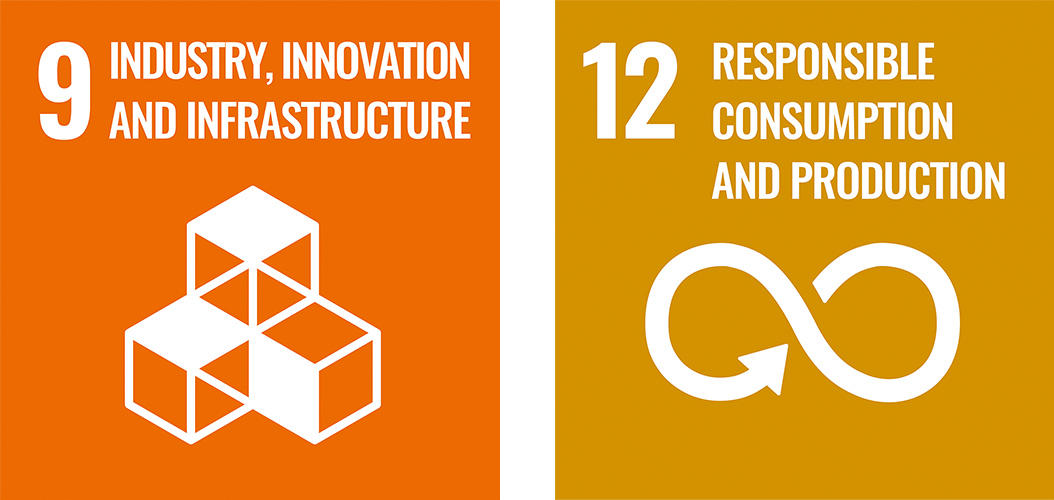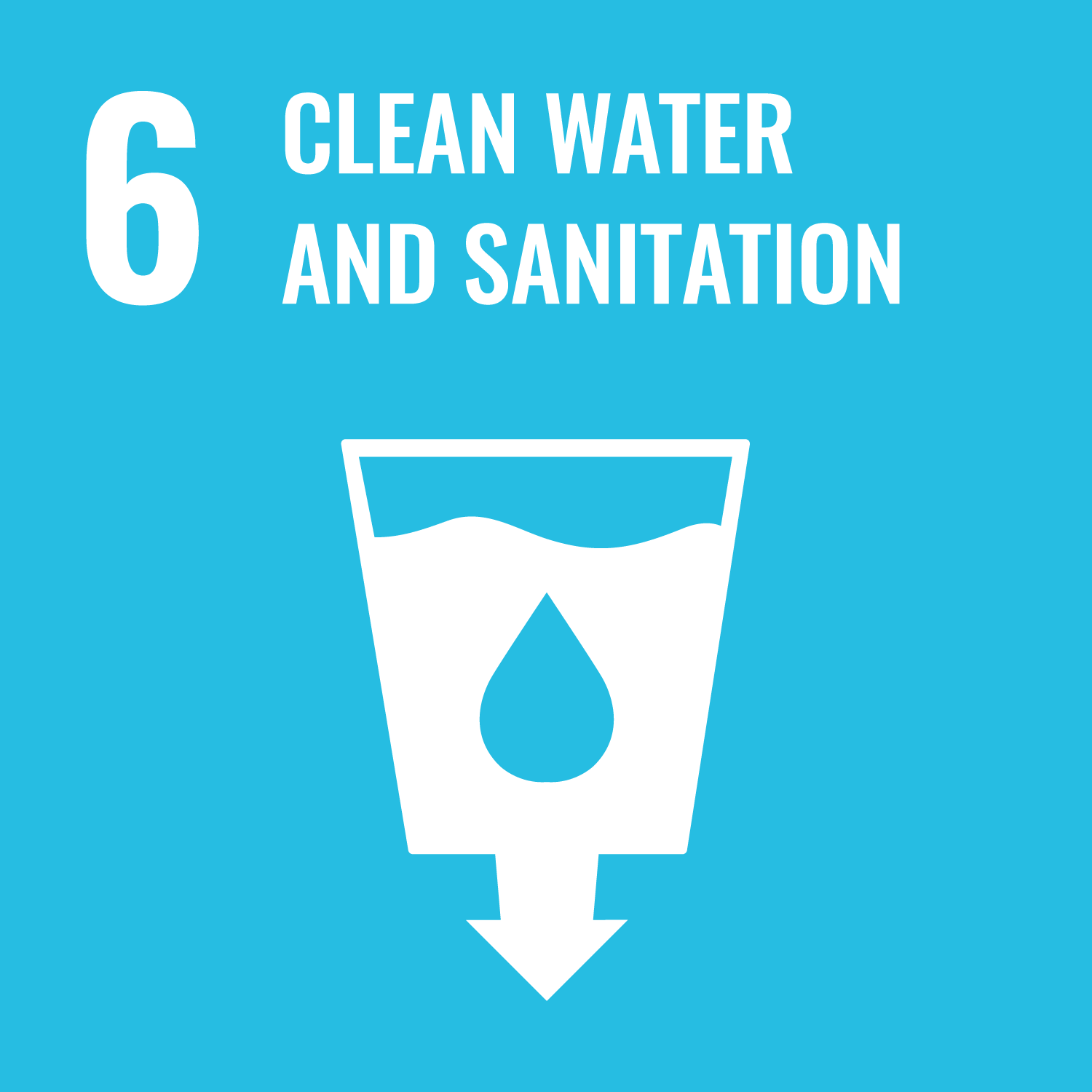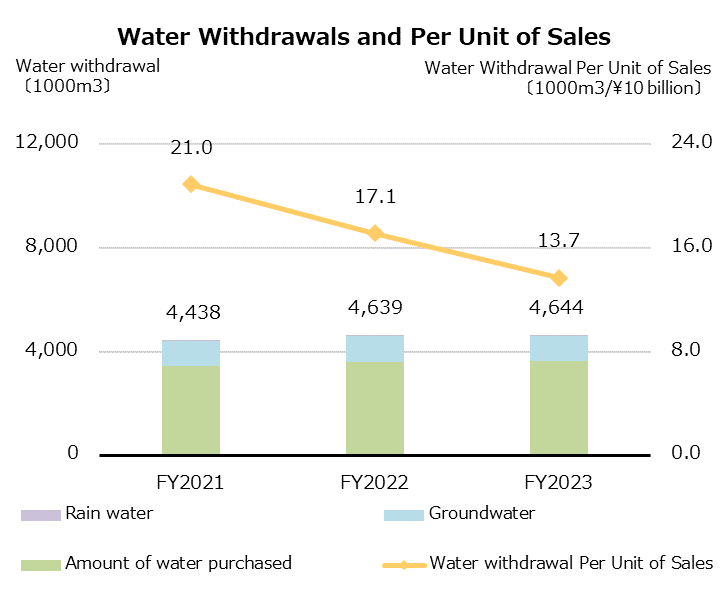Establishing a Recycling-Based Society
In order to establish a recycling-based society, Toyota Industries seeks to minimize the amount of resources used by curtailing the generation of waste from production activities and promoting reuse. We are also working to minimize the environmental impact on water resources by reducing both the amount of water used and the amount of wastewater discharge (pollution load) according to the characteristics of each business site while giving consideration to the water situation in each region.
Our Approach

Waste
Mass consumption, if continued on the back of the expanding world population and economic growth, will eventually deplete natural resources. Toyota Industries believes it is essential to promote 3R (reduce, reuse and recycle) design for effective resource utilization and the recycling of waste as resources. We set a goal of minimizing the use of resources in our Environmental Vision 2050. Accordingly, we have been making various efforts, including extending the life of components as well as reducing their size and weight in the area of product development. In production activities, implementing measures to reduce resource consumption at the source, ensuring the maximum resource recycling within a plant and reducing waste by using leading-edge technologies are the three pillars of our activities.

Water
Water is the basis of all life on the Earth and is an irreplaceable and valuable resource. Every year, however, we have been witnessing the increasingly severe impacts of droughts, floods and other natural disasters resulting from climate change as well as shortages in drinking water and agricultural water caused by the growth in the world’s population. Many of the processes of Toyota Industries use water for washing and painting products, and we regard the water supply crunch caused by climate change and population growth as a significant risk to our business activities. Accordingly, we have set a goal of minimizing the environmental impact on water resources and have been monitoring water input and output in each country and region and promoting the recycling of water and reduction of water intake.
<Water Risk at Production Sites>
We evaluate risks relating to water resources at each production site using the following process. We use the WWF Water Risk Filter, an international water risk assessment tool, to perform regional assessments and evaluate potential water risk in each country and region based on information including laws and regulations as well as production processes at each site. We then communicate with those sites where risks are determined to be high and conduct comprehensive water risk evaluations. The evaluations conducted in fiscal 2023 did not identify any sites as having high water risks based on the comprehensive water risk evaluations. However, at two sites in India located in regions with relatively few water resources, we are taking action to recycle wastewater and use rainwater and continuously working to reduce water intake and wastewater discharge.
Targets
| Target year | Waste (non-consolidated) | |
|---|---|---|
| Targets | FY2026 | Reduce waste volume per unit of production by 12% campared to 2013 |
| 2050 | Minimize the use of resources |
| Target year | Water | |
|---|---|---|
| Targets | FY2026 | Promote water withdrawals activities that take into account the water environment conditions in each country and region |
| 2050 | Challenging for minimum environmental burder for water resources |
Activity Results
Waste

Under the Seventh Environmental Action Plan, we are working to reduce waste emissions per unit of production (non-consolidated) by 12% from the fiscal 2014 level, and in fiscal 2023 we are promoting activities aimed at achieving the target for fiscal 2026, including efforts to recycle waste.
Water

Under the Seventh Environmental Action Plan, we promote water conservation activities that take into account the water environment conditions in each country and region.
Examples
Toyota Industries Report 2023 p42
Waste: Reducing the Use of Masking Materials by Improving Two-Color Painting Process
Toyota Industries Report 2023 p43
Waste: Recycling Waste Plastics from Production Processes
Toyota Industries Report 2023 p41
Water: Reducing the Environmental Impact of Treated Water
